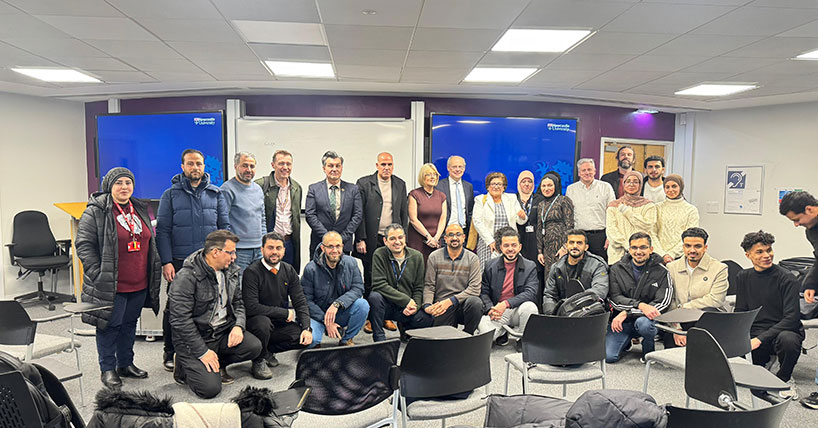Academic connections are poetry in motion
Academic connections are poetry in motion
Published on: 30 November 2016
A poet is writing to a different beat as she takes inspiration from the police force to mark new approaches to academic research.
Bringing about change
Working together: bringing about change, is a celebration of the research and partnerships created within Newcastle University’s Faculty of Humanities and Social Sciences, taking place today (30 November 2016).
Poet Christy Ducker’s residency with Northumbria Police and Crime Commissioner Vera Baird QC’s office, funded through a grant from Newcastle Centre for the Literary Arts (NCLA), took place over eight months last year.
As part of her research Christy went out on patrol with officers to experience what it takes to keep Newcastle’s streets safe at night. “It was fascinating to be in that environment, surrounded by police officers and really look at everything going on,” she says. “Most of the time we look down and walk through without stopping, but this gave me to chance to look up and meet everyone’s eyes.
“But I still missed so much – one time they suddenly arrested three people I hadn’t even noticed! The police know the streets so well; they read them like a book and pre-empt what’s coming next. They were literally ‘all eyes’ and have such a unique way of looking at the world that’s so intuitive and perceptive.”

All eyes on the justice system
Christy also spent a lot of time in the law courts, with victim support and the rape scrutiny panel, which Ms Baird set up in January 2015. Ms Baird’s team is looking back over all rape cases from the 1970s onwards to analyse the language used to see if there was anything missed at the time. Christy wrote a ‘found’ poem based on an experience she had in the courts listening to a barrister try to discredit a rape victim.
Christy completed her Creative Writing PhD at Newcastle University on Grace Darling and focused on how you ‘write a life’ and give someone their voice back. “I’m very interested in voices that are rarely heard,” she says. “Police officers don’t get heard and neither do victims a lot of the time.”
‘All Eyes’ consists of four poems and a short essay, along with an introduction by Linda Anderson, Professor of Modern English & American Literature at Newcastle University and a foreword by Vera Baird, QC.
“I have been very impressed by Christy’s work and am really glad that I have been able to assist her with the project,” says Ms Baird. “She has been able to capture some of the daily challenges of working in the police and show a different side to our officers.
“I wish her all the best with the rest of the project and look forward to seeing what comes from her time with our newly qualified officers.”
Creative writing comes into force
Nationally, the police are looking to bring more analytic and intuitive skills into police training to make it less prescriptive, and Northumbria Police is keen to use creative writing as part of that process. Christy will now be shadowing some new officers through their probationary period over the next two years and writing poems to mark key milestones.
“The Police and Crime Commissioner role was such a new position that this was a great opportunity to get a feel for what policing involves,” says Professor Anderson, who instigated this project. “It’s hard for people on the outside to get a sense of what the police do so the PCC role offered the opportunity for a fresh perspective on their work.
“Through this project we’ve built up a good relationship with the PCC and the police and they are looking at this as something that could help bring about cultural change within the service. It’s definitely got a lot of potential.”
The showcase at the Civic Centre will feature talks and exhibitions, as well as a short performance of the award-winning Town Meeting, a production by Cap-a-Pie theatre company based on research by Dr Paul Cowie, from the University’s School of Architecture, Planning and Landscape.
Other highlights include Dr Alexandra Hughes, School of Geography, Politics and Sociology, talking about her collaboration with Flower Valley Conservation Trust, a Western Cape NGO, to improve sustainable harvesting practices in the South African wildflower industry.
Dr Tony Young will also be talking about his work with Youth Focus North East to develop a smartphone app to help young people communicate with those with dementia.
The event is funded by the Economic and Social Research Council, Newcastle University’s Humanities Research Institute, Institute for Creative Arts Practice and the Institute for Social Renewal.
Photo of Christy Ducker courtesy of Phyllis Christopher



